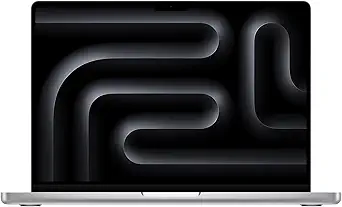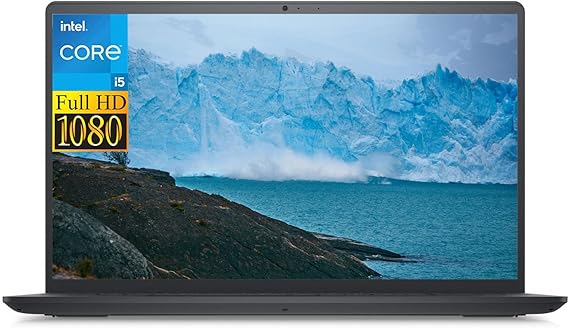In the tech realm, the clash of titans has always been a riveting spectacle, captivating audiences with its relentless pursuit of innovation and user experience. One such battleground is the perennial face-off between Apple and Dell laptops, two industry stalwarts vying for the crown of supremacy in the fiercely competitive laptop market. Both brands boast loyal followings and cutting-edge technology, but which one emerges victorious in this showdown of style, performance, and functionality? Let's dive into the fray and unravel the intricacies of this epic rivalry.
Key Features Comparison
Product Selection
Apple and Dell are two of the most popular brands in the laptop market, each with a diverse range of products to cater to different user needs. Apple's laptop line-up is primarily composed of MacBook Air and MacBook Pro models, each available in different sizes and configurations. The latest models feature Apple's own M1 chip, which has been praised for its performance and efficiency. However, the product selection is relatively limited compared to other brands, and the high price point may not be suitable for all consumers. On the other hand, Dell offers a wider range of laptops, from budget-friendly Inspiron models to high-performance Alienware gaming laptops, and premium XPS models. Dell's latest models feature Intel's 11th Gen processors or AMD's Ryzen 5000 series, providing powerful performance across the board. Dell's broad product selection allows users to choose a laptop that best fits their budget and needs. However, some users have reported inconsistent quality across different models. Compared to Apple, Dell offers a wider product selection, but the quality and performance may vary depending on the model.
Affordability
When it comes to the aspect of price, Apple laptops are generally more expensive than Dell laptops. The latest models of Apple's MacBook Pro, for example, start at a price of around $1,299 and can go up to $2,799 for the high-end models. This high price tag is often justified by the brand's reputation for high quality, durability, and the seamless integration of hardware and software. Apple's laptops also come with the latest technologies such as the M1 chip, which offers high performance and efficiency. On the other hand, Dell offers a wider range of laptops catering to different price points. For instance, the Dell Inspiron series starts at a much lower price point of around $300, making it more accessible for budget-conscious consumers. Even Dell's premium line, the XPS series, is generally less expensive than Apple's MacBook Pro, with prices starting at around $900. Despite the lower price, Dell laptops are equipped with the latest technologies like 11th Gen Intel Core processors and NVIDIA GeForce graphics. However, compared to Apple, Dell laptops might not offer the same level of build quality or software integration.
Reputation
Apple and Dell are two of the most reputable laptop brands in the market, each with its own strengths and unique selling points. Apple, known for its cutting-edge technology and premium build quality, has a strong reputation for delivering high-performance laptops with sleek designs. The MacBook Pro and MacBook Air are popular choices among professionals and creatives due to their powerful processors, high-resolution Retina displays, and seamless integration with other Apple devices. However, Apple laptops are often criticized for their high prices and lack of hardware customization options. On the other hand, Dell is recognized for its wide range of laptops catering to different user needs and budgets. The Dell XPS series, for instance, is highly regarded for its impressive performance, stunning display, and durable build, often compared favorably with Apple's MacBook Pro. Dell's reputation is also bolstered by its excellent customer service and support, as well as the flexibility it offers in terms of hardware customization. However, some users have reported inconsistent quality across different Dell laptop models. In comparison to other brands, both Apple and Dell maintain a strong reputation in the laptop market, each offering a unique user experience.
Battery Life
Apple laptops, particularly the MacBook Pro and MacBook Air, are renowned for their exceptional battery life. The latest MacBook Pro models are equipped with an 83.6-watt-hour lithium-polymer battery that can last up to 10 hours under normal usage, according to Apple. The MacBook Air, on the other hand, boasts an even longer battery life, with its 49.9-watt-hour lithium-polymer battery offering up to 15 hours of web browsing and up to 18 hours of video playback. This long-lasting battery life is one of the key advantages of Apple laptops, allowing users to work or play for extended periods without needing to recharge. Dell laptops, on the other hand, offer varying battery life depending on the specific model. For instance, the Dell XPS 13, one of Dell's flagship models, comes with a 52 WHr battery that can last up to 12 hours under normal usage. However, other models like the Dell Inspiron 15 3000 only offer up to 6 hours of battery life. It's important to note that while Dell laptops may not consistently match the battery life of their Apple counterparts, they often come with the advantage of being more affordable. Furthermore, Dell offers a wider range of models, catering to different needs and budgets, which may not always prioritize battery life.
Display
Apple laptops, particularly the MacBook Pro and MacBook Air, are renowned for their high-quality Retina displays. The latest MacBook Pro models come with a 13.3-inch or 16-inch LED-backlit display with IPS technology, offering a resolution of 2560-by-1600 or 3072-by-1920 respectively. These displays are known for their vibrant color reproduction, deep blacks, and high contrast ratios, making them ideal for graphic design, video editing, and other visual tasks. However, they lack touch screen capabilities, which is a downside for some users. On the other hand, Dell laptops, such as the Dell XPS and Inspiron series, offer a range of display options. The Dell XPS 13, for example, boasts a 13.4-inch InfinityEdge display, with a resolution of up to 3840-by-2400, which is higher than that of the MacBook Pro. The display also supports Dolby Vision and has a 16:10 aspect ratio, providing more vertical screen real estate. Some Dell models also offer touch screen capabilities, which is a plus for users who prefer a more interactive experience. However, while Dell's displays are high-quality, they may not match the color accuracy and contrast ratio of Apple's Retina displays.
Conclusion
In the battle of Apple vs. Dell laptops, there is no clear winner, as both brands offer compelling options tailored to different preferences and priorities. Apple excels in design and integration, delivering a seamless user experience powered by its proprietary hardware and software ecosystem. On the other hand, Dell shines in performance and affordability, offering a diverse lineup of laptops designed to meet the needs of a broad spectrum of users. Ultimately, the choice between Apple and Dell laptops boils down to individual preferences, whether it's a preference for style and innovation or value and versatility. Whichever path you choose, rest assured that both Apple and Dell will continue to push the boundaries of laptop technology, driving innovation and inspiring users worldwide. So, whether you're team Apple or team Dell, the future of laptop computing looks brighter than ever, thanks to these two industry giants.


















